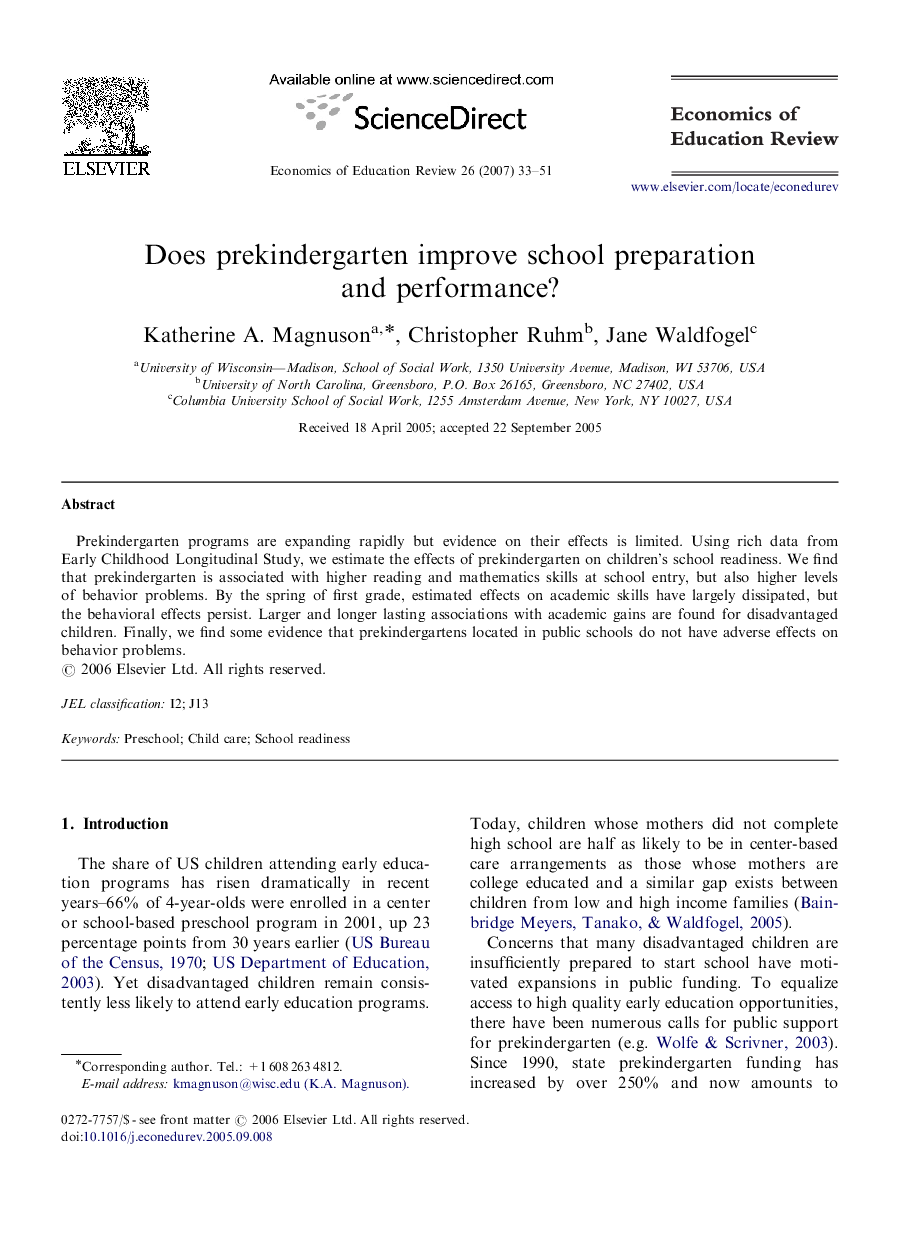| Article ID | Journal | Published Year | Pages | File Type |
|---|---|---|---|---|
| 355036 | Economics of Education Review | 2007 | 19 Pages |
Abstract
Prekindergarten programs are expanding rapidly but evidence on their effects is limited. Using rich data from Early Childhood Longitudinal Study, we estimate the effects of prekindergarten on children's school readiness. We find that prekindergarten is associated with higher reading and mathematics skills at school entry, but also higher levels of behavior problems. By the spring of first grade, estimated effects on academic skills have largely dissipated, but the behavioral effects persist. Larger and longer lasting associations with academic gains are found for disadvantaged children. Finally, we find some evidence that prekindergartens located in public schools do not have adverse effects on behavior problems.
Keywords
Related Topics
Social Sciences and Humanities
Economics, Econometrics and Finance
Economics and Econometrics
Authors
Katherine A. Magnuson, Christopher Ruhm, Jane Waldfogel,
